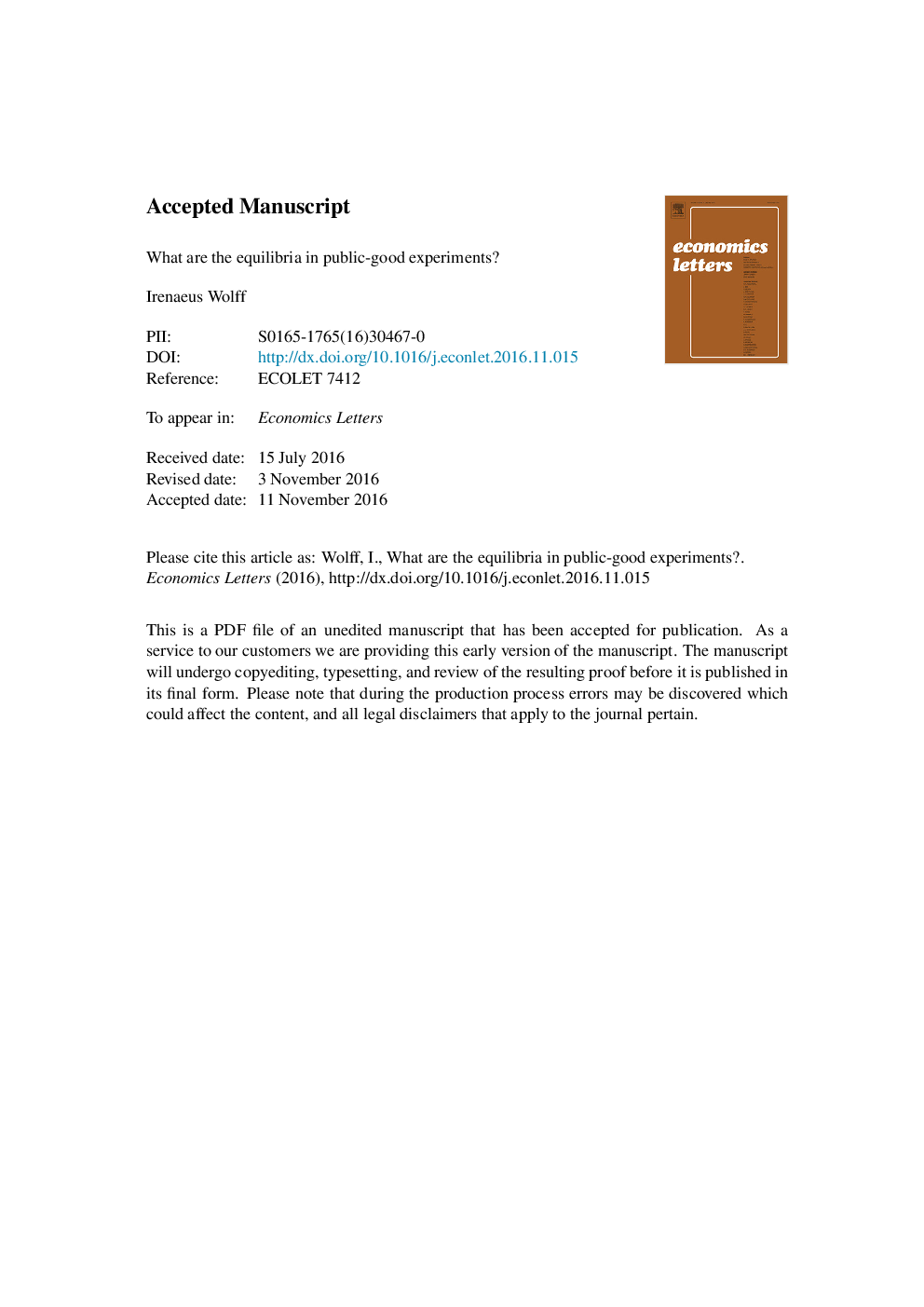| Article ID | Journal | Published Year | Pages | File Type |
|---|---|---|---|---|
| 5057879 | Economics Letters | 2017 | 9 Pages |
Abstract
Most social-preference models have been tailored to yield only a full-defection equilibrium in one-shot linear public-good situations. This paper determines the Nash-equilibrium sets that result from experiment participants' elicited preferences. The data show that multiple equilibria are relatively frequent even in a standard three-player setting. In this perspective, the common finding of close-to-omnilateral defection at the end of repeated public-good games is surprising and raises the question of why the dynamics of play seem to select this equilibrium out of the existing equilibria.
Keywords
Related Topics
Social Sciences and Humanities
Economics, Econometrics and Finance
Economics and Econometrics
Authors
Irenaeus Wolff,
